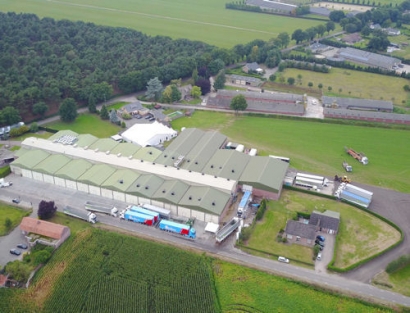
"Years of preparation, in which HoSt has been an important cooperation partner, now leads to a triumph. We are proud of this step towards the realization of this further increase in sustainability since the founding of Sikes," says Gerard Sikes, director of Sikes Group and the Organic Nutrition Centre. "Thanks to the bioenergy plant, sustainable processing and a wider applicability worldwide of the residual flows from our mushroom cultivation is possible in the short term."
Sustainable useful end-products
Prunings and wood residues from the surrounding area are used to produce sustainable energy, resulting in significantly greater independence from fossil fuels for the Sikes mushroom farm. In addition, the energy is put to good use: the heat is used to dry mushroom compost. There is a global demand for this product in the form of pelletized organic fertilizer.
Production processes of the mushroom farm, such as its sorting lines will run on the generated electricity. Any remaining green power will be fed back into the grid. The steam, which can be drawn off from the installation, will be used for steam cleaning that has a disease-reducing effect and keeps the mushroom culture healthy. Gerard Sikes' five-year plan includes the production of organic boards from the mushroom residues.Clean energy
The bioenergy plant is highly efficient and, thanks to extensive flue gas cleaning technology, provides low-emission energy production from available wood residues from the area.
"Our proven technology results in low emissions and high performance. The application of a flue gas condenser increases the efficiency by 22%, bringing the total efficiency to 110%," says Ivan Derkink, sales engineer at HoSt.
Crowdfunding
Investing in the project is possible through the Dutch crowdfunding platform duurzaaminvesteren.nl. Already more than half of the target amount has been raised within a week.

